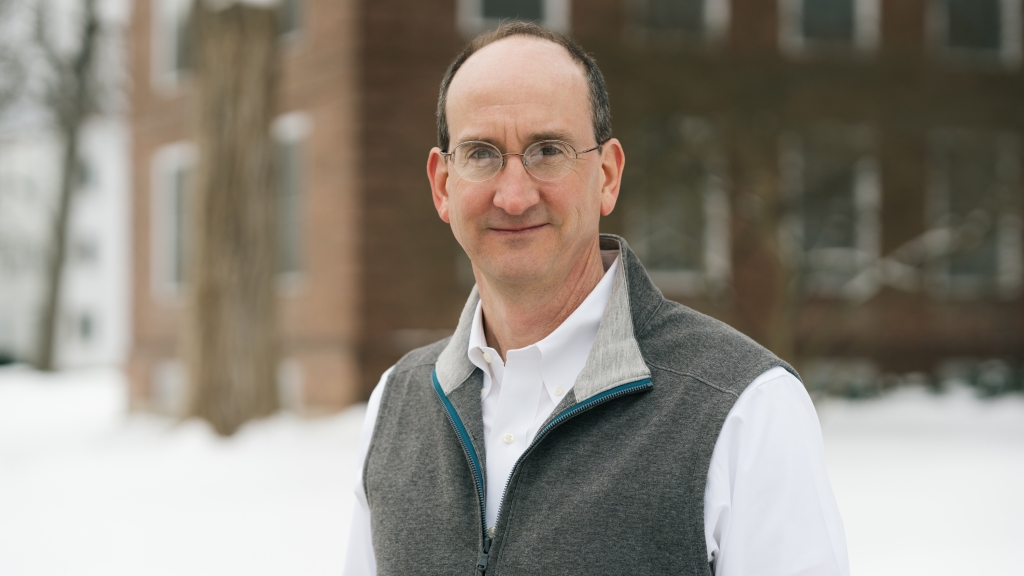To stretch the supply and accelerate global vaccination against the coronavirus, a team of economists is calling for the testing of fractional doses of COVID-19 vaccines. Their findings are published in the Proceedings of the National Academy of Sciences.
"By utilizing half doses of some COVID-19 vaccines, our projections suggest that vaccine supply could be expanded by half-a-billion doses per month," says co-author Christopher Snyder, the Joel Z. and Susan Hyatt Professor of Economics. "Vaccinating more people more quickly could help reduce illness and death. This is especially important for low- and middle-income countries who have limited access to COVID-19 vaccine supplies."
The study’s co-authors include Snyder’s long-time collaborator Michael Kremer, a professor of economics at the University of Chicago and a 2019 Nobel Prize recipient.
With 436 million COVID-19 cases reported and approaching 6 million deaths and the continued emergence of new variants, COVID-19 doesn’t appear to be going away anytime soon. According to Our World in Data, about 63% of the world's population have received one dose of a COVID-19 vaccine but only 13% of people in low-income countries have received one dose.
Meanwhile, some people are receiving up to four doses, illustrating disparities in vaccination.
For the study, the team applied a three-pronged approach, involving clinical, epidemiological, and economic analysis, to examine the potential efficacy of fractional COVID-19 vaccine doses given that large-scale randomized controlled trials on such doses have not been conducted.
All three approaches supported at least testing, if not large-scale rollout, of fractional doses:
- Through a synthesis of available clinical studies, the results suggest that cutting the dosage of COVID-19 vaccines—at least those that are highly effective against hospitalizations and severe disease to start with—should not be expected to cause too much of an efficacy falloff, based on projections from existing, small-scale studies of antibody responses from different dosages.
- The study’s epidemiological modeling suggests that fractional doses can be good for public health at the population level even if the efficacy fell off more than expected based on the clinical evidence. More deaths would be averted when a higher percentage of the population is vaccinated even with a moderately less effective dose.
- The study uses economics to argue that commercial incentives for experimentation come nowhere close to social incentives and that testing fractional doses has huge upside potential with little downside risk.
"Commercial incentives to support the testing of fractional doses of COVID-19 are not currently strong given that vaccine manufacturers make the same amount of money regardless of how quickly vaccine doses are sold," says Snyder. "But the social value—the fact that you’re protecting people from the illness and death they might suffer waiting for a vaccine, and you’re also helping open up the economy more quickly—is worth trillions of dollars."
For primary or booster shots, the researchers propose that governments support either experimental or observational evaluations of fractional dosing. If a major falloff in efficacy is observed, governments can always reverse course and stop the rollout and just re-vaccinate people with a stronger dosage.
As countries clamor to obtain boosters against new variants, low-income countries continue to struggle with a lack of vaccine supply and high rates of infection and deaths.
The study's authors say fractional dosing could not only provide immediate benefits by relaxing those supply constraints but that the benefits could redound in the future as well. "If we learn that fractional doses work for COVID-19, that’s a lesson that can be 'banked' for the next pandemic, reducing the time wasted persuading officials to test a variety of dosing regimens," says Snyder. "The accelerated response can save lives not just now but in the future."
Last week, funding came through to run large-scale trials in Nigeria in coordination with the Federal Ministry of Health and support of University of Chicago’s Development Innovation Lab and the WAM Foundation.
Since 2020, following the onset of the COVID-19 pandemic, Snyder, Kremer, and some of the other co-authors have served as advisers to U.S. and international officials about COVID-19 vaccine funding. They have met with the U.S. Council of Economic Advisers and Domestic Policy Council, Inter-American Development Bank, World Bank, and other international organizations, and continue to present their work to stakeholders around the globe.
Snyder, Kremer, and several of the other co-authors are also members of the Accelerating Health Technologies, dedicated to analyzing how to speed widespread access to vaccines and treatments, including those for COVID-19.
Snyder is currently working on a funding mechanism to incentivize a universal vaccine that could combat further COVID-19 mutations and coronaviruses yet to emerge, as well as perhaps even the common cold. The incentives might favor a vaccine that could be administered nasally and stored at room temperature, reducing vaccine hesitancy and encouraging distribution to areas lacking the cold-storage infrastructure required by current COVID-19 vaccines.
The study’s co-authors include Witold Więcek, Esha Chaudhuri, and Alexandre Simoes Gomes at University of Chicago; Amrita Ahuja at the Douglas B. Marshall Jr. Family Foundation; Alex Tabarrok at George Mason University; and Brandon Tan at Harvard University.
